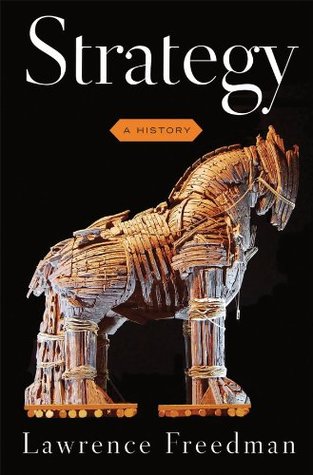More on this book
Community
Kindle Notes & Highlights
Having a strategy suggests an ability to look up from the short term and the trivial to view the long term and the essential, to address causes rather than symptoms, to see woods rather than trees.
Strategy is required when others might frustrate one’s plans because they have different and possibly opposing interests and concerns.
The word strategy only began to be used in Britain, France, and Germany in the late eighteenth century, reflecting an Enlightenment optimism that war—like all other spheres of human affairs—could benefit from the application of reason.
One does not, however, need to go as far as George Orwell who, reviewing a book on strategy, observed that “there is something unsatisfactory in tracing an historical change to an individual theorist, because a theory does not gain ground unless material conditions favor it.
The concept of “Machiavellian intelligence,” as promoted by Byrne, established a link between strategy and evolution. The sort of basic survival techniques identified by Niccolo Machiavelli for sixteenth-century Italy turned out to be similar to those necessary for survival in the most primitive of social groups.5
Mētis described a particular notion of a strategic intelligence for which there is no obvious English equivalent. In Greek it was related to mētiaō: “to consider, meditate, plan,” together with metióomai, “to contrive,” conveyed a sense of a capacity to think ahead, attend to detail, grasp how others think and behave, and possess a general resourcefulness. But it could also convey deception and trickery, capturing the moral ambivalence around a quality so essential to the strategist’s art.
In his epics, Homer contrasted mētis with biē, or brute force. Biē was personified by Achilles, famed for his exceptional physical strength, bravery, agility, and mastery of the spear, but also his great rages.
THE MOST POWERFUL dichotomy in all strategic thought was the one first introduced by Homer as the distinction between biē and mētis, one seeking victory in the physical domain and the other in the mental, one relying on being strong and the other on being smart, one depending on courage and the other imagination, one facing the enemy directly and the other approaching indirectly, one prepared to fall with honor and the other seeking to survive with deception.
In Strategemata, composed by the Roman Senator Frontinus between 84 and 88, the traditions of Roman warfare were passed on. The book was widely disseminated and retained a long influence, including Machiavelli for example.
The Byzantine emperor Maurice’s Strategikon had a similar take at the start of the seventh century: “[I]t is well to hurt the enemy by deceit, by raids or by hunger, and never be enticed to a pitched battle, which is a demonstration more of luck than of bravery.


